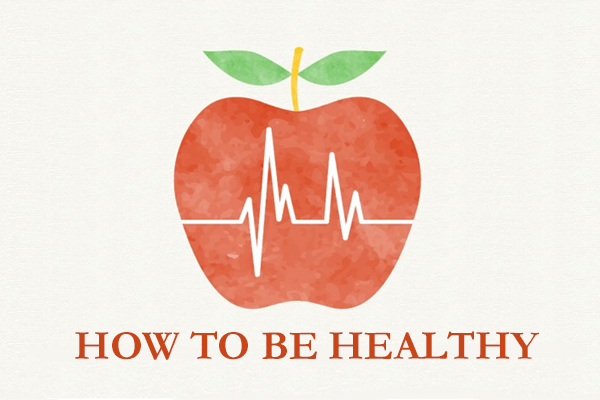How to Be Healthy: Insomnia

Sleep deprivation is a worse malaise than most people realise. Pat Thomas explains some of its causes, effects and remedies
In our ‘open all hours’ culture, it’s easy to trivialise the role of sleep in staying healthy. While some people may appear to thrive on a few hours of sleep a night, most of us need the standard seven or eight hours’ worth to stay healthy. And yet many of us – around 30 per cent of adults – find it hard to get to sleep even when we are tired.
The usual symptoms of insomnia are familiar: difficulty in falling asleep, waking up frequently during the night and then finding it difficult to return to sleep, or waking up ‘too early’ in the morning. But whilst most of us would define insomnia by the number of hours of sleep ‘lost’ in a night, in fact it can also defined by the quality of the sleep we normally get. If you sleep throughout the night but still wake unrefreshed, you may likewise be suffering from insomnia.
Insomnia can affect people of all ages, although it is more likely among the over-60s, women in general and postmenopausal women in particular. There are three different grades of insomnia. Those who suffer bouts of insomnia that last from only one night up to several weeks, have what is called ‘transient insomnia’. If your sleep patterns are disturbed only from time to time, you have ‘intermittent insomnia’. However, if your insomnia occurs on most nights and lasts a month or more, you are suffering from ‘chronic insomnia’.
Sleep debt dangers
Left untreated, insomnia not only causes health problems; it can be a signal of a body that is breaking down. For example, chronic insomnia can herald the onset of a serious illness, such as ischaemic heart disease, which is twice as prevalent in poor sleepers. An insomniac is also three times more likely to develop frequent debilitating headaches. Other conditions it may presage include arthritis, kidney disease, heart failure, asthma, Parkinson’s disease and hyperthyroidism.
For the first time, scientists are now looking seriously at what happens to our bodies when we live on just a few hours of sleep a night, and the health implications are shocking.
Research conducted at the University of Chicago in 1999 and published in The Lancet, found that after four hours’ sleep for six consecutive nights, healthy young men had blood test results that nearly matched those of diabetics. Their ability to process blood sugar was reduced by 30 per cent, they had a huge drop in their insulin response, and they had elevated levels of a stress hormone called cortisol, which can lead to hypertension and memory impairment. More recent data suggests that an inexpensive and effective way to improve the health of people with type 2 diabetes might be to improve the duration and quality of their sleep.
Other hormones are also disrupted by lack of sleep. The normal daily rhythm of intense sunlight alternating with nights of near-total darkness has dominated the planet for many thousands of years. The artificial light that bombards city dwellers in particular can drastically alter this cycle.
The attempt to erase the night or at least confine it to small, artificially confined windows may come with a price. It can, at a minimum, lead to a chronic lack of sleep, diminishing the effectiveness of the body’s immune system. But studies also show that it can also disrupt levels of a hormone called melatonin, the knock-on effect of which can be an increased risk of certain cancers, for instance breast cancer.
Other evidence shows that sleep debt also lessens the entire brain’s ability to function – most significantly impairing the areas of the brain responsible for attention, complex planning, complex mental operations, and judgment. Worse, once you have acquired a sleep debt it can be hard to make it up again. Evidence suggests that even after four straight nights of uninterrupted quality sleep, deprived people are still slower and more prone to errors than those who had not lost any sleep.
Popping pills
Surveys show that less than half of insomniacs ever go to their doctors for help. Their reluctance may have a solid foundation. Medical training devotes limited time and attention to the problem of insomnia, which may explain why the advice and treatment offered often seems so limited.
If your insomnia is transient or intermittent, it is unlikely that your doctor will prescribe anything to help. Instead, he or she may trawl out the usual advice such as taking a warm bath before bed, reading a book (provided it is boring), listening to calming music and drinking a cup of camomile tea. You may be advised not to do any exercise up to four hours before going to bed, not to eat a heavy meal just before bedtime, and to avoid caffeine and alcohol in the evening. Some may suggest techniques like muscle-by muscle relaxation or meditation.
For chronic insomnia, you may be given a tranquilliser such as benzodiazepine, or an antidepressant, if your doctor suspects that depression may be the main cause of your sleeplessness. Benzodiazepines are the most commonly prescribed drugs for insomnia, but even our normally prescription-happy doctors generally do not like to prescribe a course lasting longer than four weeks. Most know that insomnia is a symptom rather than a disease, that pills can only work for a short time and that they can become addictive.
In truth, most cases of chronic insomnia that reach the doctors’ offices are never properly diagnosed. This is because chronic insomnia is often the result of a combination of factors, including underlying physical or mental disorders, such as depression.
Some prescription drugs can also cause insomnia – a frequent problem with elderly people. Less severe types of insomnia may be easier to tackle (see box, right). But whatever type of insomnia you have, solving it will require a commitment to investigating, in a more detailed way, what in your lifestyle may be causing the problem.
Sidebar: Try these first
If you regularly have trouble sleeping, try these approaches:
- Keep it dark The bedroom should be dark, and the room at a comfortable temperature – around 18–21°C (65–70°F).
- Stay regular Develop a routine where you go to bed and get up at the same time and use the bed only for sex and sleeping.
- Food allergies or intolerance can cause insomnia, especially in children. Studies show a six-hour delay between eating the offending food and feeling wide awake – probably due to an outpouring of hormones that interfere with sleep.
- Nutrients Deficiencies in calcium, magnesium or B vitamins can cause insomnia. If you have a blood sugar problem, chromium may be effective in helping you sleep.
- Herbal remedies – such as valerian, passiflora, St John’s wort , camomile, hops and catnip – have fewer adverse effects than prescription drugs.
- Aromatherapy Research suggests that lavender oil sprinkled on your pillow works as well as tranquillisers.
- Exercising daily can reduce stress, so in turn ease insomnia.
- Cut the caffeine The effects of caffeine can last up to 20 hours, so it will disturb some people’s sleep patterns even when their last cup was in the morning.
- Low blood sugar can lead to sleeplessness. To prevent this, eat a high-carbohydrate food (e.g. bread, wholegrain crackers or a banana) before bedtime.
- Deal with stress through counselling and techniques such as yoga and meditation.
- Quit smoking Studies show that smokers are more likely to suffer from insomnia.
This article first appeared in the June 2007 edition of the Ecologist












